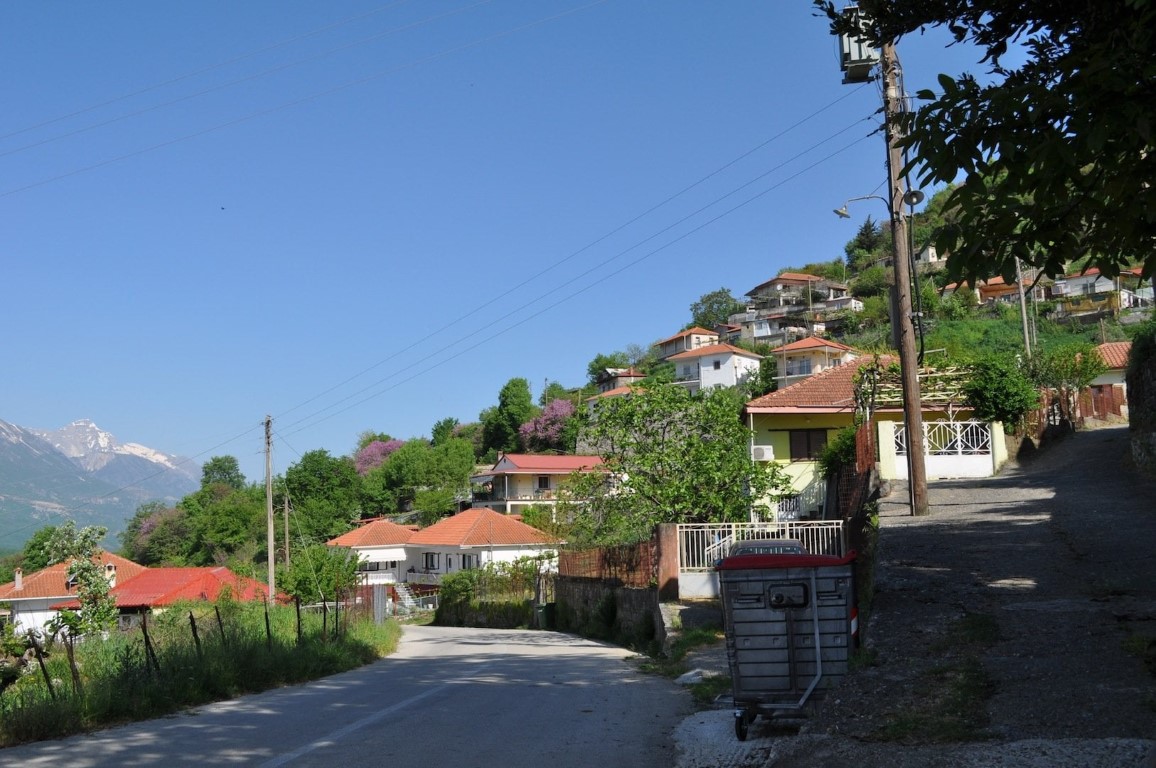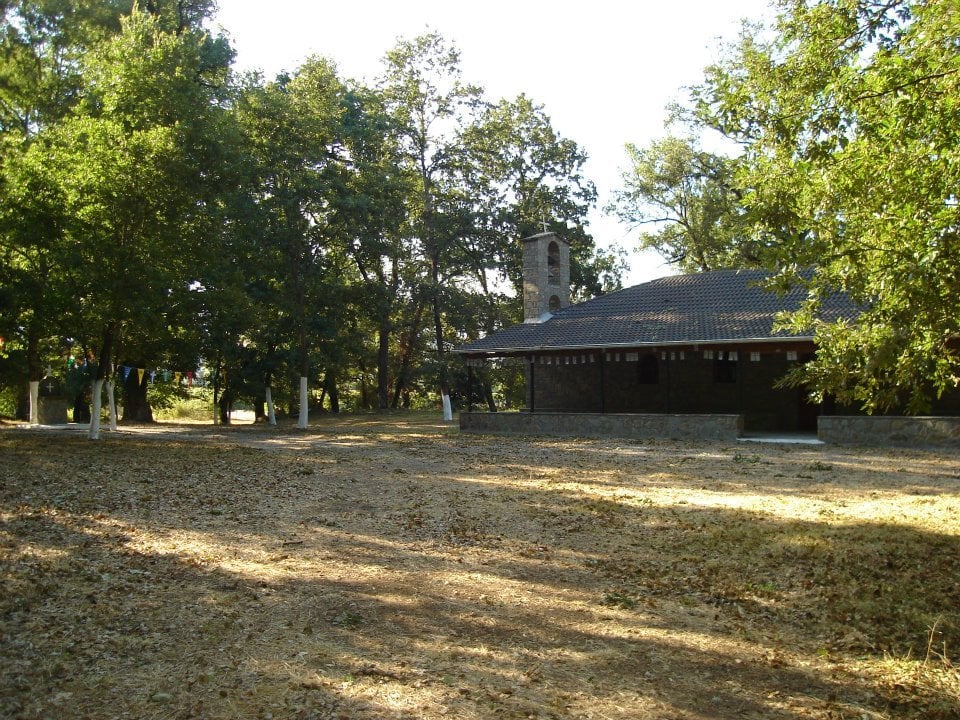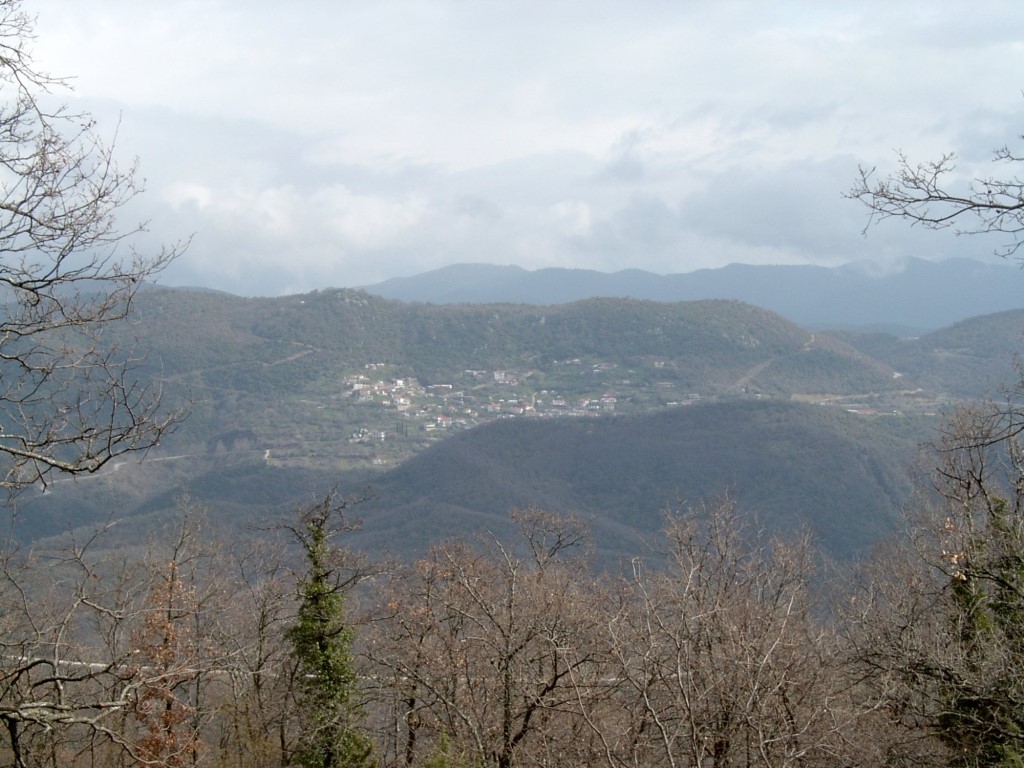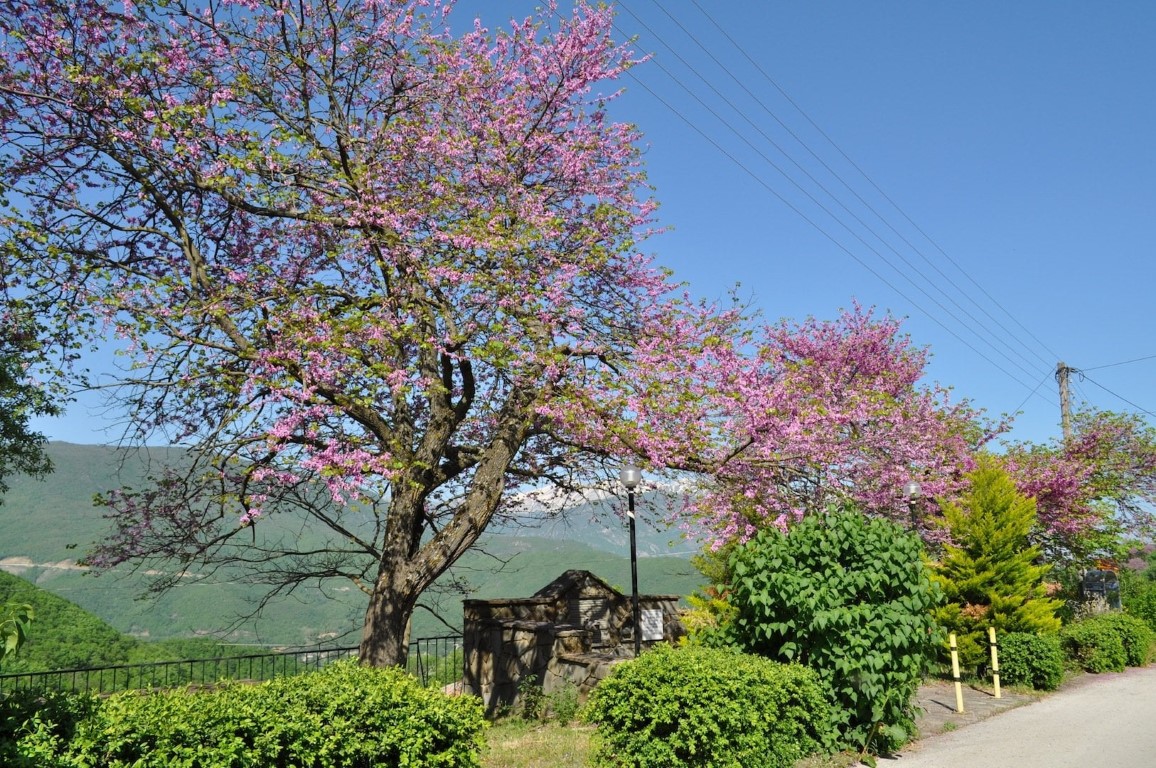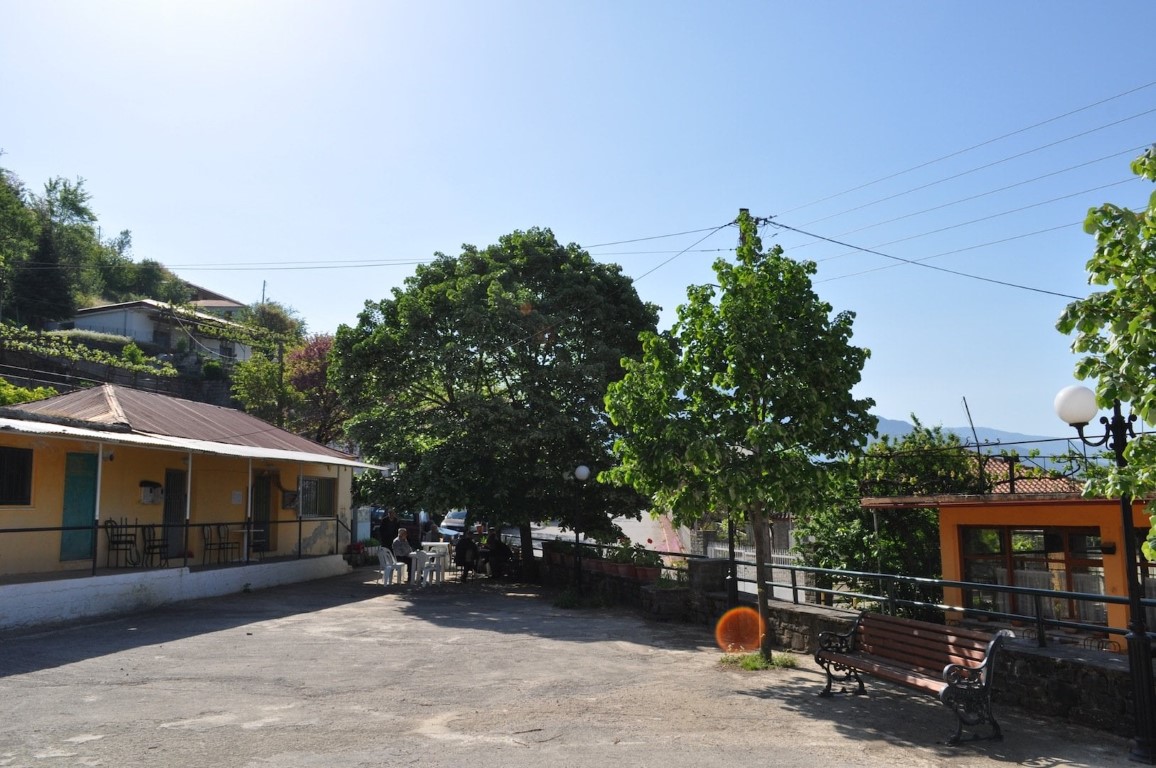Aetomilitsa is built on the southern slopes of Mount Grammos, below the large peaks of Gesos (2165m), Skirtsi (Parifano, 2444m), Kiafa (2395m), Tsouma (2174m) and upper Arena (2196m). It is built at an altitude of 1520m and is higher than any other village in the area of Konitsa. It is 16.3 km away from the National Road of Konitsa-Kozani and 50 km away from Konitsa.
The old name of the village was Denisko and it means sunshine, which indicates the geographical orientation of the village. In the 30’s, it was renamed to Aetomilitsa (meaning Eagle and Apple tree).
The life of the inhabitants of Aetomilitsa (as in many Vlach villages of Pindos) is intertwined with the semi nomadic livestock farming. Every year, at the beginning of June, the cattle breeders with their herds, numbering several thousand cows, are scattered in the vast pastures of the village, in the central Grammos. At the beginning of autumn, they follow the opposite course to the places of Thessaly and Macedonia where they spend the winter with their cattle.
Aetomilitsa is a starting point for mountaineering routes to the surrounding beautiful amazing peaks of Grammos, which make the area a paradise for hikers and climbers. In the village during the summer months, there are two taverns and a coffee bar which are located in the square and offer an impeccable service throughout the day. The spiritual center of the village adorns the entrance of the square, while the creation of the shelter contributed to the substantial development of the village as it operates all year round and hosts a large number of visitors.
On the 15th of August, when the church of Panagia has its celebration, a big festival is organised. The meeting of all the people of Aetomilitsa takes place there, in which many visitors participate. In addition, the Local Community, the Cultural Associations and the breeders of Aetomilitsa organize an event for livestock, on the last weekend of July. Traditional documentaries are shown in the village square, there are dance groups and there is a following all-night party that takes place in the taverns of the village. Also, in the location “Goura” there is a representation of the pastoral life of the breeders and a presentation of the production of traditional products.

